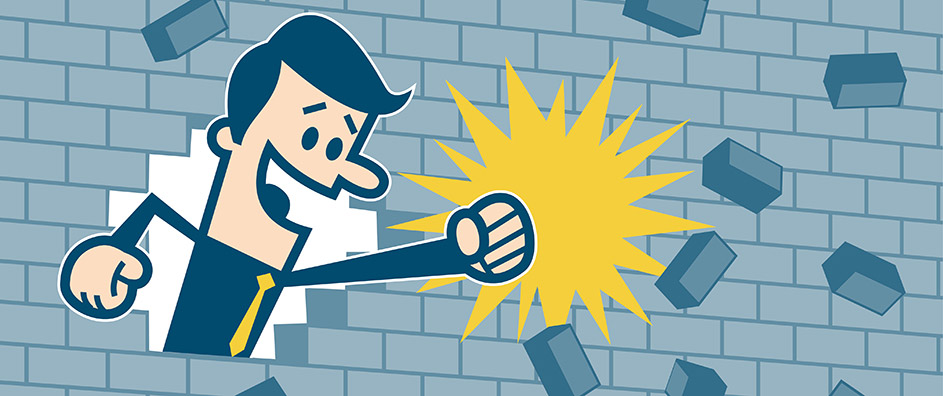In an era characterized by individualism and divisive ideologies, the Bahá’í teachings present a profound metaphor: the demolition of walls between the individual and the community. This powerful imagery evokes thoughts of bridges rather than barriers, presaging a harmonious existence where collective well-being supersedes individualistic impulses. This article delves into the philosophical underpinnings and social implications of Bahá’í teachings, highlighting their unique appeal in addressing contemporary societal dilemmas.
At the heart of Bahá’í thought lies the conviction that humanity is entwined within a singular fabric, a concept referred to as the “Oneness of Humanity.” This principle posits that artificial divisions—whether grounded in race, religion, or nationality—are detrimental to societal progress. The walls erected by prejudice and misunderstanding obfuscate our intrinsic connection to one another. The Bahá’í teachings advocate for a collective identity, transcending individual differences, promoting an enriched understanding of the human experience.
Within this context, the individual emerges not as an isolated entity but as an integral component of a larger tapestry. The metaphor of demolishing walls invites a reconsideration of selfhood. It beckons individuals to perceive themselves as both autonomous beings and communal participants, fostering a duality that enriches personal identity and collective consciousness. This synergy is critical in developing a cohesive societal framework that nurtures both individual potential and communal responsibility.
Furthermore, the notion of community within Bahá’í teachings extends beyond simple social structures; it encompasses a spiritual dimension. This perspective implies that involvement in community life is not merely a civic duty but a sacred obligation. The foundation of this obligation rests on the principle of service—a pivotal tenet in Bahá’í thought. Engaging in acts of service dismantles barriers, transforming the act of giving from a mere transaction into a spiritual exchange that invigorates both giver and recipient.
Consider the metaphor of a garden, wherein each individual represents a unique flower. Isolated and unwatered, these blooms may struggle to thrive. However, when nurtured together in a shared environment, they cultivate a vibrant ecosystem that flourishes jointly. This garden metaphor illustrates the interconnectedness of individuals within a community. They are influenced by one another, drawing strengths and virtues while also facing the challenges of coexistence. The Bahá’í approach nurtures this interplay, advocating for collective action towards common goals that serve to strengthen the community fabric.
Moreover, in the pursuit of demolishing these figurative walls, the Bahá’í teachings emphasize the importance of consultation. This participatory decision-making process exemplifies an ideal where divergent views are embraced, leading to holistic and inclusive outcomes. Consultation acts as both a tool and a pathway for individuals to engage meaningfully within their communities, fostering mutual respect and deeper understanding. It cultivates an atmosphere that values dialogue over dogma and unity over estrangement.
Nonetheless, challenges persist. The journey towards community cohesion is fraught with the remnants of entrenched divisions. There exist socioeconomic disparities, cultural prejudices, and historical grievances that often resist the founding principles of Bahá’í teachings. To truly demolish these walls, individuals must first undertake an internal voyage—an examination of their biases and assumptions. This introspective journey necessitates humility and courage, qualities that are essential for authentic reconciliation.
Education plays a pivotal role in this transformative process. The Bahá’í emphasis on universal education serves as a tool to erase ignorance and cultivate awareness. Education, in this context, becomes more than the acquisition of knowledge—it transforms into a means of fostering empathy and understanding. This commitment to education underscores the belief that enlightenment and empowerment pave the way for social upliftment, enabling individuals to contribute meaningfully to their communities.
Moreover, the materialization of these teachings requires transformative leadership. Leaders within the Bahá’í community are encouraged to embody qualities such as integrity and selflessness, acting not as authoritative figures but as facilitators of collective empowerment. This reimagining of leadership demystifies power dynamics traditionally observed in societal structures and aligns with the Bahá’í vision of a world characterized by justice and equity.
The process of demolishing walls doesn’t merely signify the removal of barriers; it also necessitates the construction of new pathways, forging avenues for collaboration and unity. Through community-building initiatives, such as collaborative projects and interfaith dialogues, the Bahá’í principles materialize in practical embodiments, offering communities a framework to engage in meaningful actions that resonate with shared values. This practical application reinforces the belief that the communal space functions as a crucible for transformative change, melding individual aspirations with collective endeavors.
In summation, the Bahá’í teachings provide an insightful and profound framework for understanding the necessity of demolishing the walls between the individual and the community. By advocating for the oneness of humanity, the importance of consultation, the power of education, and transformative leadership, these teachings extend a holistic approach to navigating the complexities of contemporary society. The metaphor of demolition serves not only as a call for action but also as a reminder of our innate connectivity and collective responsibility. As individuals strive to break free from the confines of isolation, they underscore a universal truth: the health of the individual is intrinsically linked to the health of the community—a truth that beckons us all toward a brighter, more unified future.
